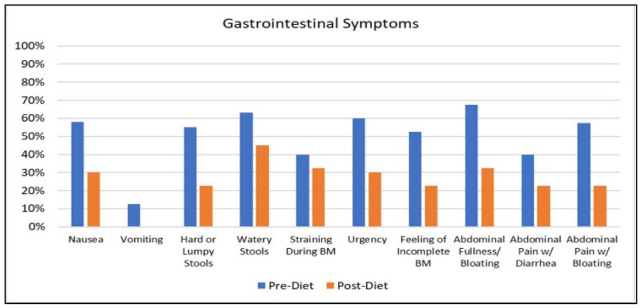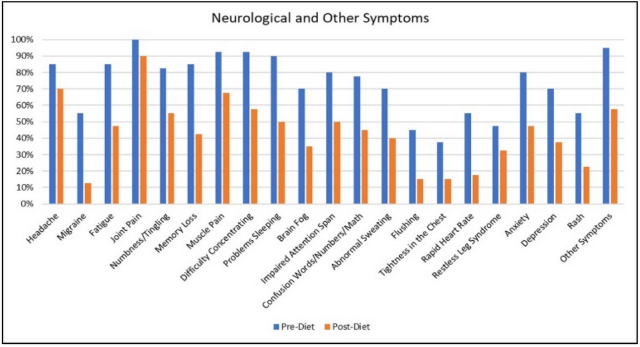WASHINGTON – The old adage, “you are what you eat” might have special relevance for veterans suffering from Gulf War Illness, a neurological disorder in veterans who served in the Persian Gulf War from 1990 to 1991.
American University-led researchers determined that, after just a month on a diet low in glutamate, a flavor enhancers found in many foods, the veterans’ overall number of symptoms were reduced, and they reported less pain and fatigue. Glutamate also functions as an important neurotransmitter in the nervous system.
The study, published in the journal Nutrients, was initiated because the DoD provides funding for treatments previously tests for fibromyalgia, because GWI symptoms are similar. The authors noted that a low glutamate diet was previously shown to reduce symptoms in fibromyalgia, making the study a candidate for funding.1
GWI is believed to be connected to nervous system dysfunction in veterans who were exposed to various neurotoxins such as chemical warfare agents, pyridostigmine bromide (PB) pills, pesticides, burning oil fields, and depleted uranium.
“Gulf War Illness is a debilitating disorder which includes widespread pain, fatigue, headaches, cognitive dysfunction, and gastrointestinal symptoms. Veterans with GWI have a reduced quality of life as compared to veterans who do not have the illness,” explained Kathleen Holton, PhD, MPH, an AU associate professor who explores how food additives contribute to neurological symptoms and is a member of AU’s Center for Behavioral Neuroscience. “In this study testing the low glutamate diet, the majority of veterans reported feeling better. We saw significant reductions in their overall number of symptoms and significant improvements in pain and fatigue.”
For the study, 40 veterans diagnosed with GWI were recruited from across the United States. Researchers analyzed symptom score, myalgic score, tender point count, dolorimetry and the Chalder Fatigue Scale.
Symptom Comparison
Participants were randomized to the low glutamate diet or a wait-listed control group, with symptom score being compared after one month. The veterans then went onto a double-blind, placebo-controlled crossover challenge with monosodium glutamate (MSG)/placebo to test for return of symptoms.
The study team reported that the diet intervention group reported significantly less symptoms (p = 0.0009) than wait-listed controls, with a very large effect size, d = 1.16. In fact, researchers said they observed significant improvements in average dolorimetry (p = 0.0006), symptom score, tender point number, myalgic score and the Chalder Fatigue Scale (all p < 0.0001) after the one-month diet. They added that challenge with MSG/placebo resulted in significant variability in individual response.
“These results suggest that the low glutamate diet can effectively reduce overall symptoms, pain and fatigue in GWI, but differential results upon challenge suggest that other aspects of the diet, or underlying differences within the population, may be driving these changes,” the authors wrote. “Future research is needed to identify potential nutrient effects, biomarkers, and underlying metabolic differences between responders and non-responders.”
Glutamate in Food
Background information in the article suggested that glutamate is most easily identified when it is in the form of the food additive MSG, but it also has other food additive names in processed foods. The report also pointed out that some foods have naturally occurring glutamate, including soy sauce, fish sauce, aged cheeses like parmesan, seaweed, and mushrooms.
In physiology, glutamate plays a role in pain transmission, where it functions as an excitatory neurotransmitter in the nervous system. Too much glutamate can cause disrupted signaling or kill cells, the authors explained.
The study cited previous research demonstrating that glutamate is high in pain processing areas of the brain in individuals with fibromyalgia and migraine. High concentrations of glutamate have also been linked to epilepsy, multiple sclerosis, Parkinson’s disease, ALS, cognitive dysfunction (including Alzheimer’s), and psychiatric issues such as depression, anxiety and PTSD, the article noted.
-
Kathleen F. Holton, Anna E. Kirkland, Michael Baron, Shalini S. Ramachandra, Mackenzie T. Langan, Elizabeth T. Brandley, James N. Baraniuk. The Low Glutamate Diet Effectively Improves Pain and Other Symptoms of Gulf War Illness. Nutrients, 2020; 12 (9): 2593 DOI: 10.3390/nu12092593




